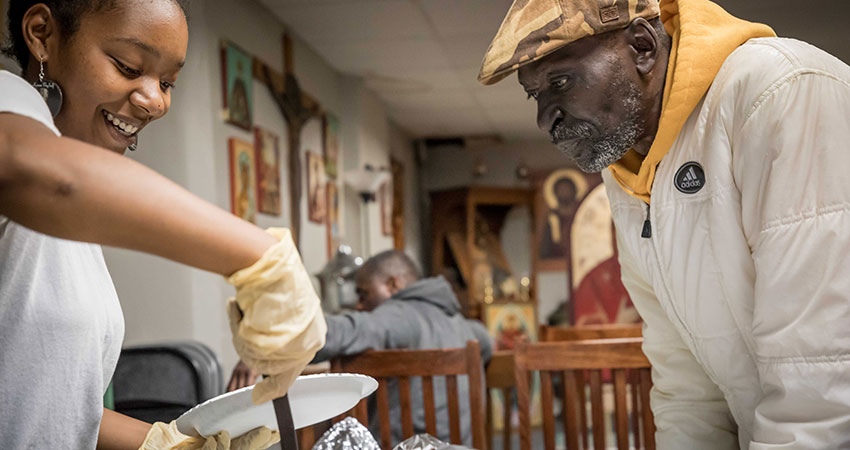
In the craft of improv there is a fundamental rule known as “yes, and.” The concept is that when your partner or colleague hands off an idea or situation to you, you don’t dismiss it or argue with them. You take that as your starting point and build on it. In essence, you say “thank you” and go from there. What results is a more seamless performance and a more cohesive team.
If ever there has been a moment for an entire community to live by that principle, it is us and it is now.
Pittsburgh has an extraordinary history of collaboration across all organizations and sectors—government, business, nonprofits, you name it. It seems to be part of the DNA of this community: When the chips are down and there is a challenge to be faced, we work together.
And we aren’t alone in that. At the level of community all around this country, in places both red and blue, people still know how to come together to solve big problems. They still understand that we are stronger together than apart, still turn to each other in times of crisis, still value the cardinal American ideal that we are one people.
Now, that instinct is being tested as never before. In our community and places all across this nation, keenly aware that no one is coming to save us, we are having to figure out how to collaborate while working across barriers far more daunting than the merely organizational—barriers of physical distance, remote access, information, awareness, training, and perceptions of safety and protection. People in front line organizations are having to answer questions they never imagined having to ask, such as what to do when your volunteers are told to stay away, or how to keep safe the volunteers who are willing to show up anyway.
For leaders at every level here, the challenges are not just one but a dizzying array of many, as the need to keep people safe clashes with the need to treat the sick, feed the hungry, shelter the vulnerable, and all while a faltering economy breeds new levels of desperation and need. Organizations and local leaders operating amid these swirling challenges must navigate different systems, ideas, beliefs and cultures often over the phone or online rather than at the human, face-to-face level where we can often more easily move past our differences.
In this atmosphere it is easy to be critical of the others who are earnestly in this fight with us, and also of ourselves, as not attentive enough, not doing enough, not caring, knowledgeable, sensitive or good enough, and we must guard against that. That frustration, while deeply human, is a trap; it is an excuse that we do not have the luxury to entertain. There will be plenty of time later for post mortems and reviews, for understanding how we got here as a nation and how we responded as a community and as individuals.
But right now, in this moment, in this hour, what we need is everyone doing their part in the ultimate, largest scale act of improvisation this community and this country has witnessed in at least a generation.
What I see and experience in our community are leaders in local government working 24/7 to provide information, galvanize action, and organize the response that is needed. I see healthcare leaders and workers doing the impossible. I see nonprofit leaders and workers struggling with how to keep their organizations afloat while simultaneously jumping right into the task of figuring out how what they do can be helpful now. I see business leaders and their teams looking to do the same. I see university leaders and professors offering up their know-how and innovation skills. I see school districts feeding families and trying to do the right thing by their students. On and on down the list I see a community of individuals and organizations all doing the best they know how.
And yes, I see flashes of tension and imperfection, moments of wishing everyone could know what we know and operate as we operate and think as we think. And God knows I am experiencing that myself.
But here’s the thing: this is not a dress rehearsal. We are all onstage right now trying to pull off the performance of a lifetime. And this moment calls for us to take the ideas and work we hand each other and say: Yes. Yes, and now let’s do this. Yes, and here’s how I can help. Yes, and you have my support.
Yes, and also: thank you. Thank you to everyone whose recent days have been filled with phone calls and emails you don’t know how to process, questions you don’t know how to answer, conversations you don’t fully know how to have, actions you don’t know how to be confident in, and feelings of inadequacy you don’t know how to handle.
Thank you. Because all of that, and then moving forward anyway as I know you have been? Well, that—that’s how we are going to beat this thing.
Written by:

Grant Oliphant
President
